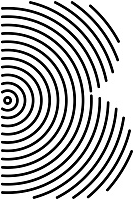Note / Day 1: Generating a substantial starting point
TL;DR: A cool writing exercise for groups with Erik Ehn & a suggestion for adapting it to generate the raw material for a story project.
Other than introductions, our first workshop with Erik Ehn was a simple writing exercise that the class ran through to generate enough material for a pretty beefy starting point.
I won't reproduce the results of the class's exercise, but here are the steps as Ehn prescribed them to a group of about 20 participants.
First, pick a random word, preferably one you find especially evocative.
What follows in a Zoom chat version of this is a list of everyone's words. I chose "hair."
Second, write down the word before yours, your own word, and the word afters yours
Mine, for the record, was "Heaven hair outage." I imagine that the first person and last person had to get creative.
Third, adding a few words here or there, turn the three words into a sentence.
I don't have a recording but I'm pretty sure I remember Ehn saying as few words as necessary to accomplish your sentence, but some of the more florid classmates didn't seem to hear the same instruction. Pff!
But what's interesting now is that we now have the ~20 sentences in the chat, and all of those sentences have lots of overlapping words. As one skims through them, there seems to be a strange sense-adjacent sensicalness to it all, though no one went in the same direction.
Ehn uses that sensation to create the next set of instructions:
Fourth, write a three-sentence story or scene inspired by the sentences that were generated.
"Inspired by" can be taken as loosely as one wants. I took it as "steal the vibe and some verbiage," but you could be plucking more directly, if it strikes you.
Though my looseness of inspo felt footloose and fancy-free, it was readily apparent by the submissions that I was a literal-minded screenwriter interloping among poets and playwrights. The rest of the class wrote theatrical haikus or hard-boiled prose poems, all of it brimming with imagery and energy. I wrote a beginning, middle, and end. Like an asshole.
I would reprint it here, but sharing the results of a writing exercise is like telling someone your dream from last night and expecting them to be proud of you.
Last, read them all.
People in class had a chance to read three or four submissions from the chat, and they read them down the line. The shared language created a theme that stuck in the DNA of the piece even after the requirement to use the words from Step One was dropped.
What we had was nonsense that felt of a piece, and it was beautiful — in its way.
I was reminded of when my friend, the poet Chris Mosdell, showed me his notebooks. His strategy is to collect evocative words and fully fill the verso pages of each notebook with words he like and/or makes up. On the recto page, he composes poems and stories from the word clouds.
This Ehn exercise strikes me as an orderly way to do something similar. That each word must be used three times, by necessity of the process, gives the final product an artificial literary depth — just by that bit of repetition. I quite like that.
I might do this myself to generate a story after my move to Portland is through. The steps might look like this:
Gather a list of 20ish words that catch my fancy. Mix it up with nouns, verbs, &c.
I'm going to start this in a spreadsheet because I am my father's son.
Create however many trios of words (i.e., 1,2,3; 2,3,4; &c.)
For example: ferret, somnambulant, uncle
Write sentences with each trio. I'm not sure if the words must be in order or not, but all three words must be used.
There are a number of ways we can go from here: Either try to write a story from sentence to sentence or try to sabotage that impulse at all costs. My objection to "feeling it out" is entirely intuitive with no rational backing.
My suggestion would be to go with what's easiest: avoid making sense from sentence to sentence.
Write a three-sentence story or scene inspired by the sentences that were generated.
At this point, I'd probably be grateful to have all of this in a spreadsheet, which will allow me to shuffle the rows to get new juxtapositions.
I would try to continue down the road of divergent thinking — widening the path with more and more ideas.
Keep it going for a week or two. Try to get to a number that feels right. Then stop.
Set it aside for a few days.
I imagine my next step would be to try to make sense of it and proceed from there to mold this raw material into something you'd be proud to bring home to mom.
I haven't gone through with the exercise yet. But this may be something I use for an Unreal Engine short film.
To learn more about how fiction and dramatic writers are inventing future forms, subscribe to Writers in the Metaverse.
